Saint-Dizier market hall earned the Grand Prix to the 2023 "Building in natural stone” contest
Christophe Aubertin of Studiolada takes you behind the scenes of this structure, which wowed the judges of the "Building in natural stone in the 21st century" architecture contest.
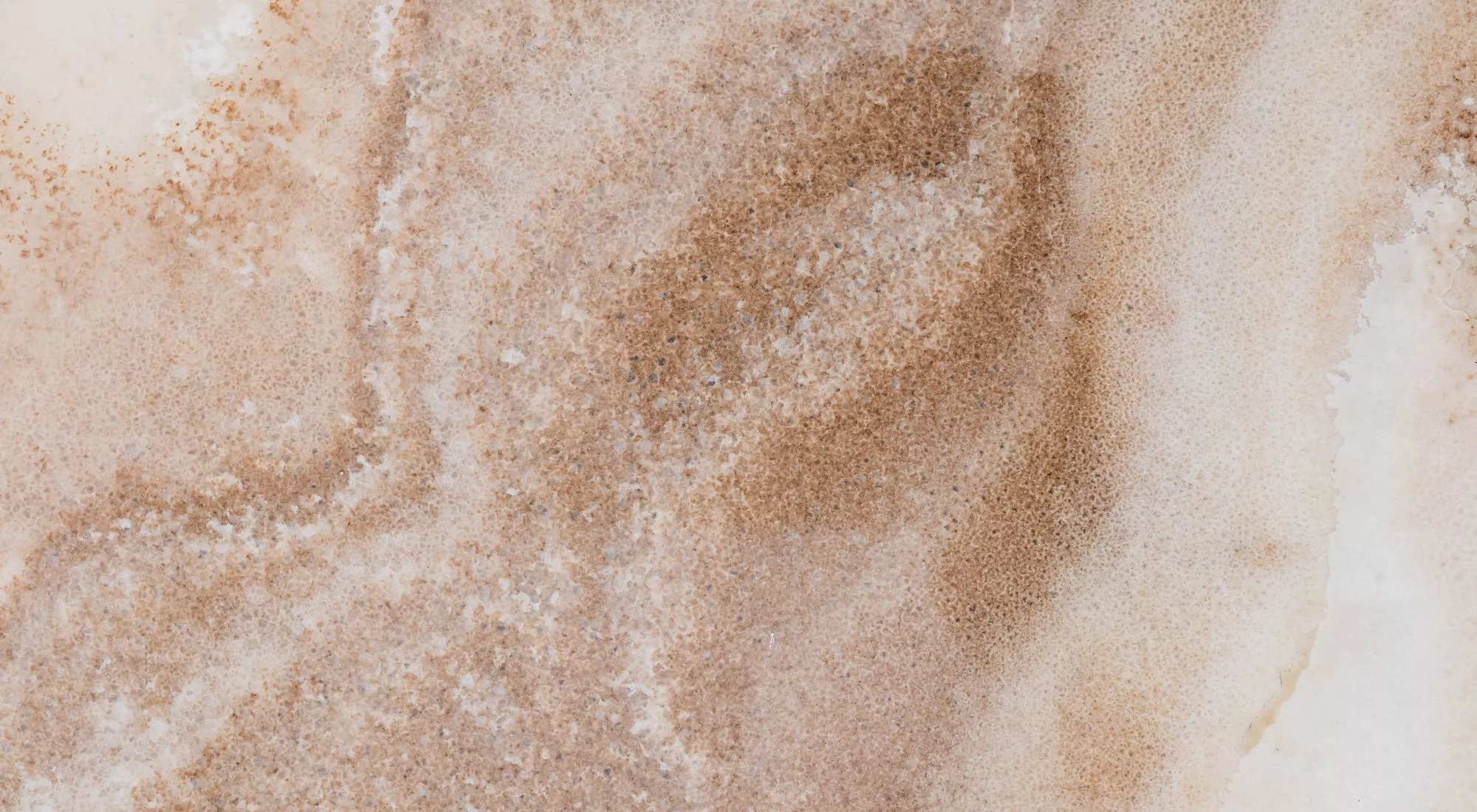
The covered market in Saint-Dizier aims to revitalize the town center. And what better material than natural stone to create business premises that cherish their heritage status while offering an attractive contemporary look that appeals to users? Christophe Aubertin, architect and founder of Studiolada, takes you behind the scenes of this structure, which wowed the judges of the "Building in natural stone in the 21st century" architecture contest. Here are the key takeaways from his conference presentation at the 2023 Rocalia trade show.
Purpose of the market hall: revitalize the town center
Over the past 30 years, Saint-Dizier’s population has fallen by 30%. Employment has declined, stores are migrating to the outskirts, and the town center has been gradually dying, to the extent that the town was granted a government subsidy to fund remedial action under a targeted initiative. This “Town Center Action” scheme saw the old covered market, which was falling into ruin, demolished and rebuilt as Saint-Dizier’s new market hall.

The project was well accepted by local residents, who appreciated the heritage-but-bold architecture. The market, which used to open two days a week, has now doubled its opening times, and a brasserie restaurant has even moved in, serving diners six days a week.
“People are genuinely aware of the benefits of sourcing their food from small, local producers, and this attitude - shared by individuals and businesses - is spreading to other aspects of life, including the building trade. The desire to build using local materials is gaining traction.”
Saint-Dizier’s new market hall rises from the ground in 2023
The new building gives pride of place to Euville natural stone, along with other local materials such as wood or cast iron, which are intertwined with the town’s history.
The structure is notable for its elegant arches, the largest of which has a span of nearly 90 feet (27 m). Three aisles run lengthwise, intersecting three transverse aisles, and a large canopy on the east side provides shelter for the outdoor stalls that set up on Wednesdays and Saturdays.
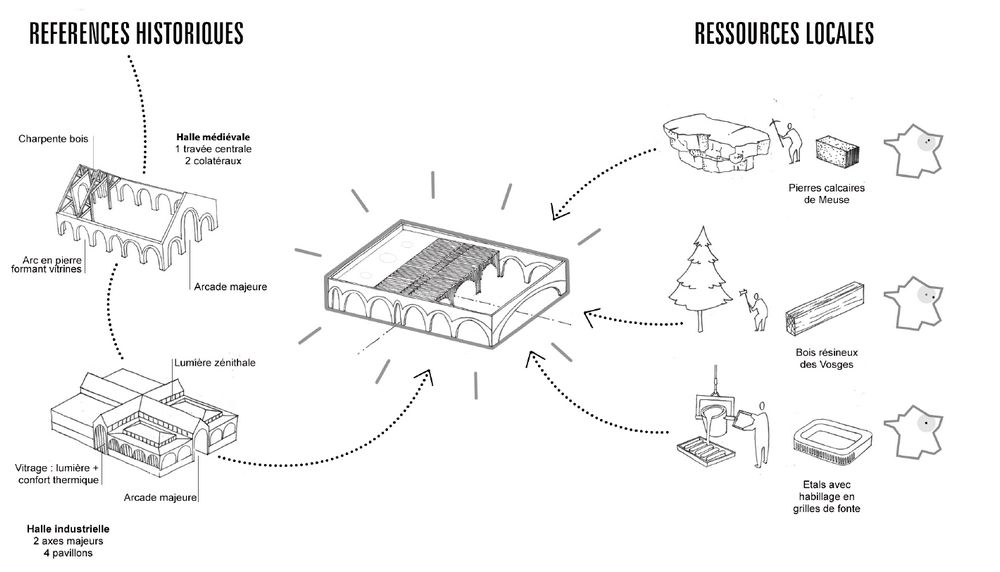
The Saint-Dizier covered market’s design had to address three major structural constraints:
- a river flows east-to-west through the building's basement
- protected bats roost in the old cellars under the building
- the poor quality ground required special foundations (40 ft / 12 m piles)
Client: Saint-Dizier's municipality
Project management: Christophe Aubertin / Aurélie Husson / Collectif Studiolada
Stone contractors: SNBR / Rocamat - Polycor
New technologies enabling best use of local stone
The quarries in Euville (Meuse department) provide high qualitative classical Euville stone, as well as Euville Geveaux stone. As the quarry already had a large stockpile of pre-cut blocks of Geveaux stone, it would have been a shame not to use them! The simple dressed blocks were sawed by Rocamat in Burgundy, while the more elaborately cut blocks were sent to SMBR's workshops in Troyes.
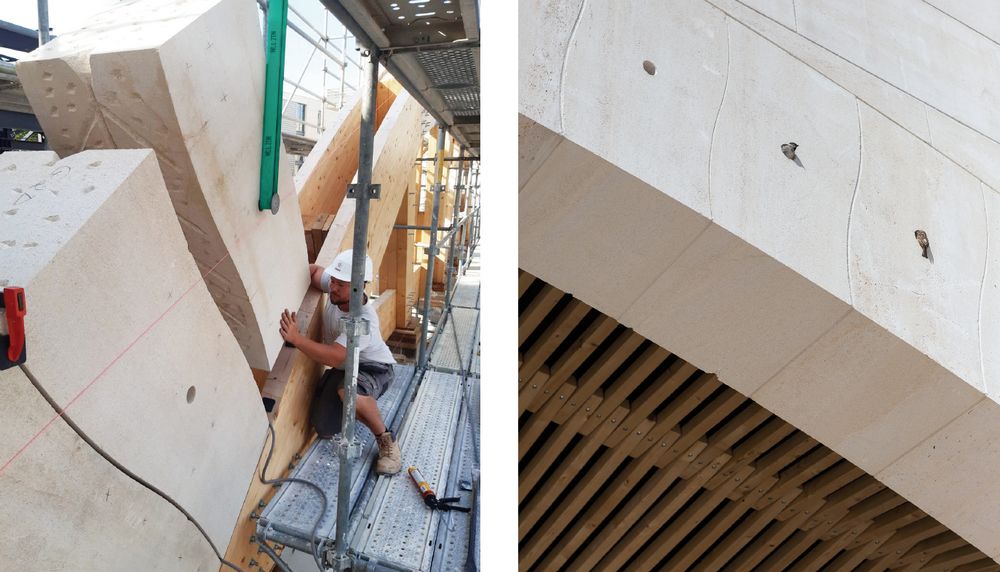
On reception of the blocks at the construction site, the project manager contracted CTMNC to scan the stones to detect any subsurface defects, as some blocks were cracked. Interestingly, it emerged that some cracked stones were in fact sound, while others that appeared fine turned out to be flawed. In all, 10 blocks were sent back for reworking after being scanned.
“If you want to use local natural resources, which are not always premium quality, this kind of assistance is invaluable in confirming their suitability.”
— Christophe Aubertin, Studiolada
Some iconic Euville stone monuments in France
- Place Stanislas in Nancy, considered one of the world’s most beautiful public squares
- Basilica of Saint-Epvre in Nancy
- Château de Commercy
- Opéra Garnier
- Grand Palais des Beaux-Arts
Natural stone arches - the biggest challenge for the project
The preliminary designs featured parabolic and “basket handle” segmental arches. After seeking the expert opinion of architect-engineer Jean-Marc Weill (at C&E engineers), catenary arches — as employed in the Sagrada Familia cathedral, for example — were ultimately chosen. The new Saint-Dizier market hall has a total of 16 natural stone arches:
- 4 narrow arches spanning 6.5 ft (2 m)
- 10 medium-sized arches spanning 23 ft (7 m)
- 2 large gable arches spanning 75 ft (23 m)
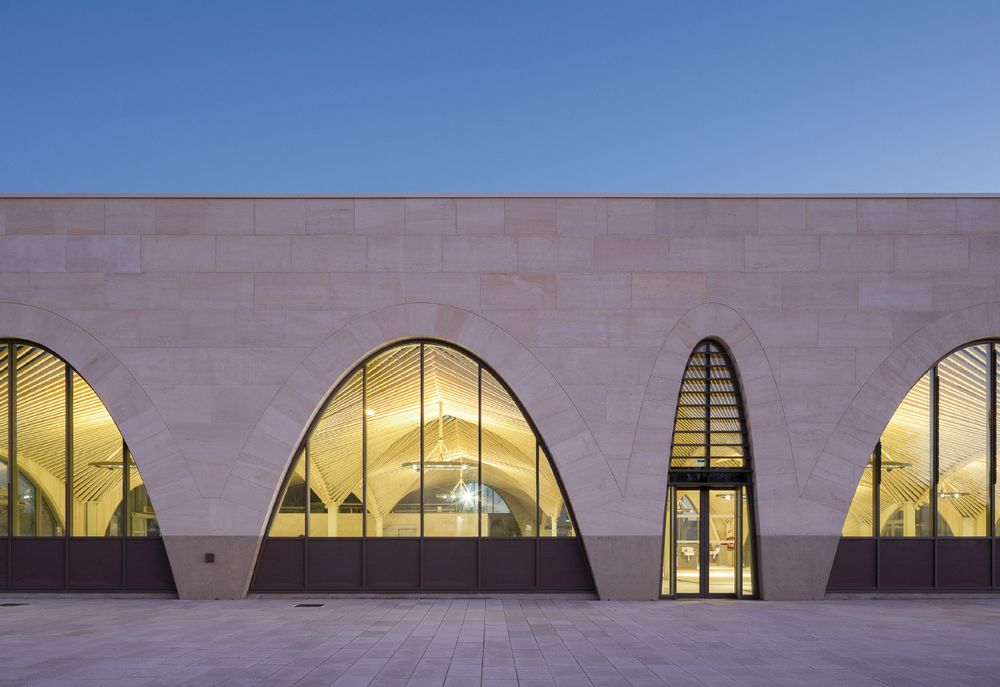
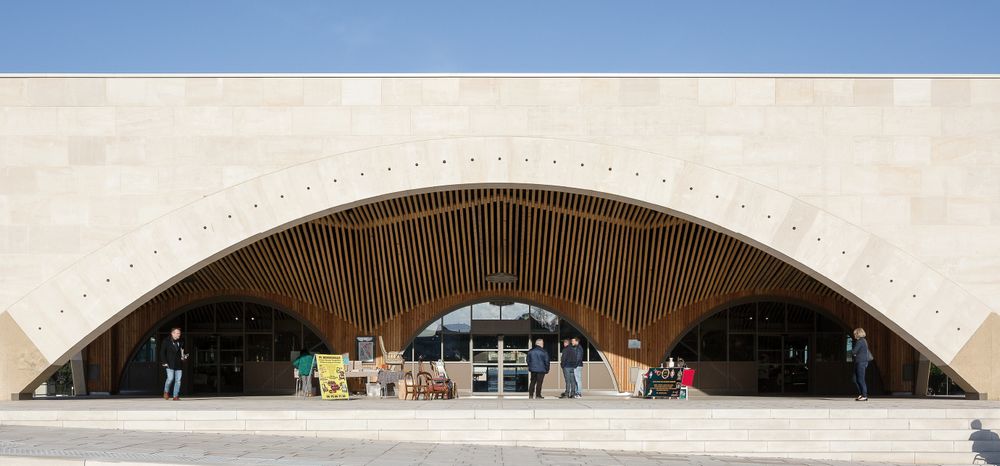
Consideration was also given to the load-bearing capacities of the arches, which are differentially loaded to withstand the weight. The original plans included mashrabiyas to decrease the loads borne by the haunches of the arches, but these features would have trapped water and caused soiling. Fortunately, the arches were able to support the solid wall anyway!
This ambitious project made extensive use of locally-sourced natural stone, proving it to be a perfectly suitable material for building business premises. The success of this covered market will undoubtedly persuade other elected officials to incorporate natural stone into their specifications!
© Photos: OLIVIER MATHIOTTE - ERICK COLIN - CHRISTOPHE AUBERTIN





